Mission, Vision & Strategies
The European University for Knowledge Entrepreneurs Mission Statement for the period 2023–33
Our VISION

Becoming one integrated European University based on shared European values, a diverse and inclusive alliance deeply rooted in the respective regional ecosystems, educating and training knowledge-entrepreneurs as drivers of transformation for the benefit of sustainable and resilient European societies.
Our MISSION
Our Transform4Europe Alliance will contribute to shaping the European University of tomorrow. As a single and sustainable alliance with efficient joint governance structures, infrastructures and services, our cutting-edge academic programmes and innovative learning environments will attract students, scientists and practitioners from all over the world. Mobility, interdisciplinarity and inclusion will be the norm on the T4EU campus. The members of our universities will share a strong European identity and perceive themselves as active agents of transformation. They will identify themselves with the knowledge-entrepreneurial spirit of the alliance and consider it the term of reference for their learning and training needs and actions throughout their lives. T4EU students, graduates and staff will be knowledge-entrepreneurs and will actively transform Europe, paving the way for a sustainable future. As bridges between regions, the T4EU universities will create networked European knowledge and innovation ecosystems, driving excellence in research and largely contributing to the attractiveness and competitiveness of the EEA and Europe as a whole.

Our GOALS

Becoming one single European university alliance
We aim at transforming and progressively further integrating our universities into one sustainable single European alliance with a joint governance, shared support structures and services, and a joint legal entity that is internationally visible and attractive as a European pole of excellence and major driver of change. This European University will pursue student-centred pedagogical approaches and participative, co-creational governance principles.
- T4EU Digitalisation strategy and roadmap (available by beginning of 2025)
- Communication strategy
Making mobility the norm
We want to make mobility within the alliance accessible for all members of the universities: An improved, flexible and inclusive mobility framework offering equal conditions and seamless mobility opportunities will establish both physical and virtual mobility as the norm for the students and the staff of our European University with a substantial number of options with embedded automatic recognition.
- Mobility4All Strategy Paper
Educating and training future European knowledge-entrepreneurs with a joint academic offering portfolio
We are developing a new and comprehensive joint academic offering portfolio in all three study cycles including customised transdisciplinary study and training programmes, integrating the transformative knowledge-entrepreneurialism perspective into all education and training activities and making it a key concept for active European citizenship: We will educate and train future European knowledge-entrepreneurs, providing them with the necessary creative and innovative entrepreneurial mind-set, intercultural competencies and language skills. The programmes will be taught with innovative, student-centred teaching methods and with a challenge-based approach. A subset of these programmes will be developed in key areas with the explicit intent of addressing the features and requirements of the European Joint Degree for an enhanced global attractiveness and recruitment potential of the alliance.
- T4EU student and staff profile strategy paper
- Joint strategy and framework on micro-credentials [available by the end of 2024]
Becoming the main drivers of regional transformation
We aim at becoming the main drivers of regional transformation by establishing structured partnerships with key regional stakeholders and facilitate interactions among them in our Transformation Labs: We will contribute to joint research and innovation initiatives with and for the regions, implementing innovative models of knowledge-creating teams that can be replicated by other actors and in different contexts through a systematic knowledge transfer approach in line with the knowledge-entrepreneurship principle that permeates the alliance. This approach will initiate a major, broader process aiming at creating networked European knowledge and innovation ecosystems that will contribute to European economic and environmental sustainability as breeding grounds for excellent research and knowledge transfer. At the same time, we will initiate, facilitate and enhance further cooperation within the alliance academic community.
- Smart transformation strategy (available by October 2024)
- Partnership Strategy (available by October 2024)
Qualifying our academic and non-academic staff
We aim at continuously qualifying both academic and non-academic staff, equipping them with the professional and transversal skills to deliver excellent results. We will train pedagogical staff in innovative teaching methods, fostering student-centred teaching and co-creational approaches. We will upskill (young) researchers in important transversal fields like Open Science and leadership, enabling them to contribute to the transformation process of their institutions and in their academic practice. Non-academic staff will be provided with a broad training offer and incentives for professional development. External actors from the concerned regions will also benefit of specific teaching and training programmes offered as part of the lifelong learning efforts of the alliance.
- T4EU student and staff profile strategy paper
- HR strategy (available by end of 2025)
- Science4All strategy [to be updated by October 2024]
Creating a Transform4Europe multi-campus European University
We will create a Transform4Europe multi-campus European University with an inclusive and green campus life promoting a common identity to be enjoyed by all students and staff. We will strengthen the ties between the alliance members with the help of cultural and sports activities displaying the rich diversity of our communities.
- T4EU Diversity Strategy (first draft to be developed by October 24)
- Green Campus Strategy (to be developed by December 24)
Our cultural heritages – a basis for the European Way of Life
We aim at reserving our cultural heritages and actively integrating it in our activities as a basis for the European Way of Life and for our common European identity. We will promote and foster multilingualism with the help of improved language-learning options and incentives. We will actively involve cultural facilities in the development of our T4EU identity and work, establishing the use of innovative technologies.
- T4EU Multilingual Campus Strategy
- T4EU Cultural Strategy (to be developed by June 2025)
Consolidating the EEA
We want to become a major player in the consolidation and success of the EEA and the European project in general and internationally, through a global outreach set of activities in which the alliance as a whole will establish a number of external partnerships by speaking with one voice to a set of prioritized academic actors worldwide. We will also take an active part in promoting the European Universities as a role model by disseminating our innovative T4EU initiatives and results.
- Global Outreach Strategy (to be developed by February 2025)















